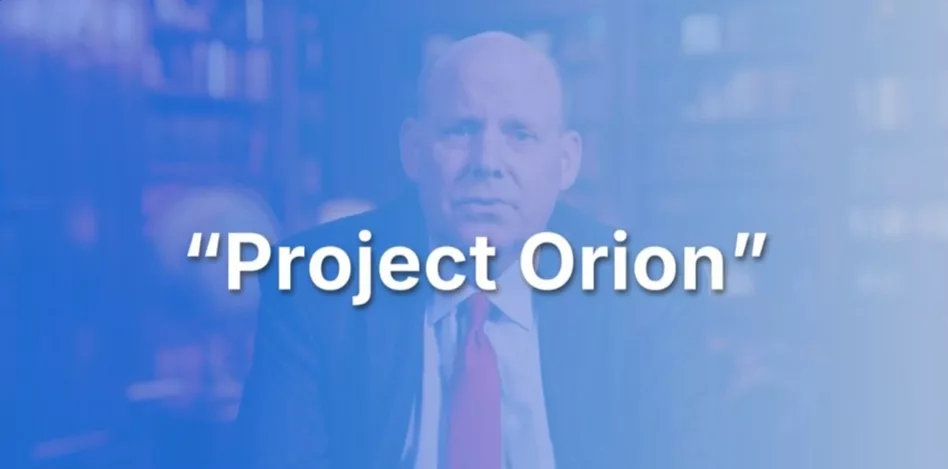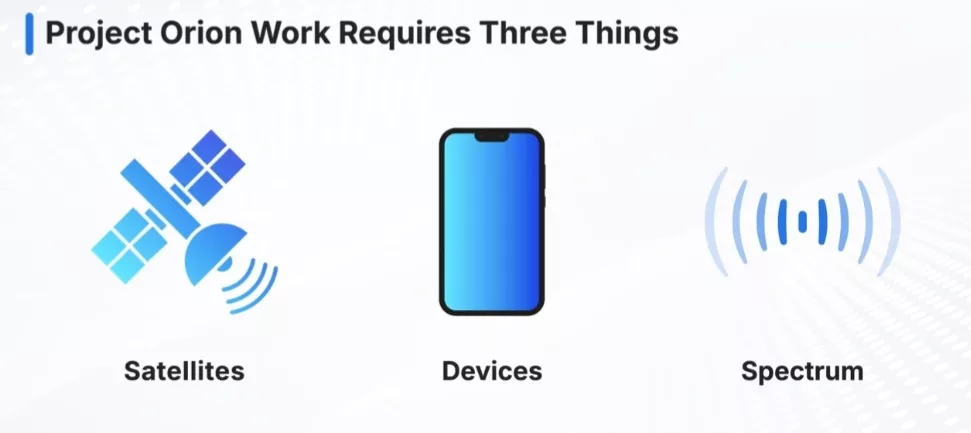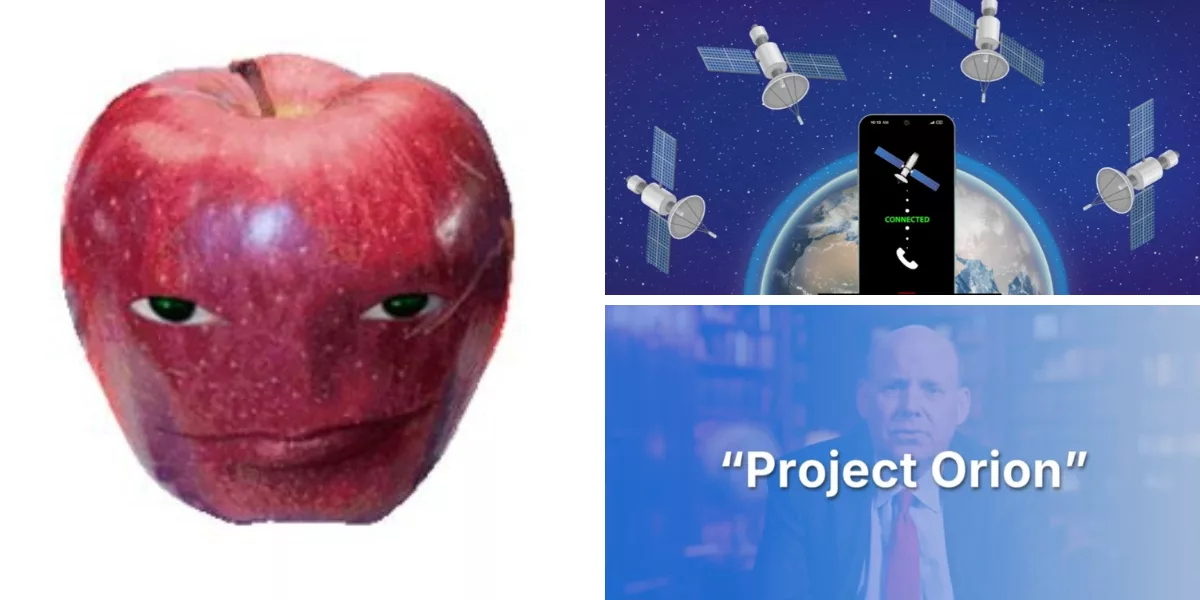The author of the Gone Fishin' Portfolio, Alexander Green, is hyped about Apple stock.
He hasn't been this excited since it traded for $1 and its all because of an upcoming “Project Orion” that could be bigger than the original iPhone.
The Teaser
As much as Alex loves Apple, it's not the pick here. Rather, it's a small company that is central to “Project Orion.”

After 16 years working on Wall Street, Alex is now doing the lord's work as the chief investment strategist at investment newsletter publisher, the Oxford Club.
We have previously reviewed his Next Magnificent Seven AI Stocks and New King of LNG teasers, which produced some interesting picks.
Right out the gate, we get told that this isn't about artificial intelligence, VR/AR headsets, or “overhyped tech” like quantum computing, which we've also recently covered.
Instead, “Project Orion” involves a major Apple announcement, a new market that is on pace to reach $1.8 trillion by 2035, and one small company at the center of it all.
Project Purple 2.0
Apple is notoriously secretive about its product launches.
Back when it was doing in-depth journalism, Wired said it had “a level of secrecy comparable to the CIA.”
A prime example is the iPhone, which was internally dubbed “Project Purple” during development.
Many Apple employees didn't even know their company was working on a phone up until Steve Jobs stepped onstage to give his now famous keynote address.
Alex believes “Project Orion” will end up being just as big.
After host George Rayburn rounds off Alex's credentials and Alex hypes up Orion's potential, we finally get some answers.
Apple is about to enable anyone that owns an iPhone to have an instant internet connection, anywhere, anytime, even in the middle of the ocean.
The project name should have tipped us off, what Alex teases is:
A constellation of satellites that will connect every person on earth
In other words, satellite internet and Apple has partnered with a specialized space company that is essential to making it a reality.
The Pitch
All of the details on this under-the-radar company have been included in a report called Apple's Space Partner.

To get, we'll need to join Alexander Green’s Oxford Microcap Trader newsletter.
A membership would set us back $1,995 upfront for the first year with a satisfaction guarantee, meaning we would get another full year, for free, if we're not completely satisfied.
A Second Internet in Space
The words that you're reading on your screen right now are possible thanks to 100-year old copper wires.
Indeed, the current internet infrastructure, made up of cell towers, wires, and undersea fiber optic cables isn't just dated, but dangerous.
Following last year's devastating Hurricane Helene in the southeast, which knocked out anything that wasn't tied down, some were without internet and cell phone service for weeks.
This is also a major problem globally, with companies reportedly losing $400 billion every year due to internet outages.
Satellite internet purports to fix these issues.
It doesn't require any ground infrastructure and in some instances, satellites even have the ability to beam hight-speed internet directly to your smartphone.
The Next Frontier
Apple's “Project Orion” isn't the only one looking to the stars.
Similar to producing large language models (LLMs) for AI and rockets that go to space, satellite internet is a rich man's game.
Space X-owned Starlink is the current industry leader, with a constellation of nearly 8,000 small satellites in low orbit.
Google's Project Suncatcher is also aiming to launch solar-powered satellites equipped with AI chips by 2027 to run AI workloads in low orbit.
So the space satellite race is on and McKinsey thinks the space economy could be worth $1.8 trillion by 2035.
Apple has the capital and is arguably better positioned to deliver satellite internet on a global scale than anyone.
There are more than 1.5 billion active iPhones across the world and it would be wildly profitable for Apple to collect a monthly internet service fee from many of those devices.
All signs point to Apple flipping the traditional telecom carrier model on its face, but it isn't quite there yet on a critical component that makes satellite internet possible.
Apple has the satellites and smartphone devices, but it's missing the spectrum.

That's where Alex's Space Partner Stock comes in, as it owns the spectrum rights that enable low orbit satellites to connect to devices here on earth.
Revealing Alexander Green's Apple Space Partner Stock
Alex's pick owns something valuable that Apple can't replicate or buy.
This is what else we know about it:
- It secured it's first spectrum allocation from the FCC in January 1995.
- The company was one of the first to launch low orbit satellites.
- It is contractually obligated to allocate 85% of its current spectrum to Apple.
- It's a microcap currently generating about $250 million in annual revenue.
The Space Partner Stock is…Globalstar Inc. (Nasdaq: GSAT). All the clues align like a star constellation:
- On January 31, 1995, the FCC granted Globalstar authority to construct, launch, and operate sixty-six low orbit satellites, making it one of the first to go to space.
- Late last year Apple injected $1.7 billion into Globalstar for a 20% equity stake and access to the vast majority of it's lucrative spectrum.
- At a market cap of just over $6 billion (up 55% so far this year), Globalstar has upgraded from microcap to mid-cap.
Make 3,000% by 2030?
A fortunate series of events is supposed to take Globalstar from the small cap it is today, to a $100 billion+ company.
First, Apple needs to announce the launch of its satellite internet service, which Alex expects by 2027.
Second, a material number of iPhone users need to sign up to Apple's satellite internet to drive up Globalstar's spectrum service fee revenue.
What are the chances of all this happens?
I remember Apple holding discussions with Boeing about a “Project Eagle” to launch satellite internet services to iPhones back in 2015.
It ultimately never saw the light of day, apparently due to Tim Cook's concerns about damaging Apple's relationship with the telecoms.
It did end up launching an Emergency Satellite Service feature for iPhones in 2022, but that's as far as it has gone.
There are no indications that an announcement expanding satellite internet service is imminent and the investment in Globalstar could just be the tech giant securing capacity for its emergency connectivity service.
For it's part, Globalstar did report record revenue in fiscal Q3, on the strength of greater spectrum capacity and service sales.
However, the company is only marginally profitable, generating net income of $3 million through the first nine months of the year, and it has $418 million of debt to pay down.
Take away the Apple “Project Orion” catalyst and Globalstar's satellite infrastructure and spectrum licenses are valuable, but much of that is already reflected in the valuation.
Globalstar stock should appreciate as satellite internet becomes more prevalent, but 3,000% over the next five years may not be in the stars.
Quick Recap & Conclusion
- Oxford Club Chief Investment Strategist, Alexander Green, is teasing a “Project Orion” that could be bigger than the original iPhone.
- What Alex is talking up is a long rumored satellite internet service from Apple and it has partnered with a specialized space company that is essential to making it a reality.
- All of the details on this company have been included in a report called Apple's Space Partner. It is ours with a subscription to the Oxford Microcap Trader newsletter, which costs $1,995 upfront for the first year.
- If you're a Greenbull reader, it didn't cost you anything, as we revealed Apple's Space Partner Stock for free – Globalstar Inc. (Nasdaq: GSAT).
- Globalstar owns valuable spectrum licenses and a network of low orbit satellites, but without Apple launching it's “Project Orion“, it will be a steady growth stock, instead of a hypergrowth one.
Is satellite internet something that you would subscribe to? Sound off in the comments.


I own some GSAT now, but this is a nice affirmation.
Thank you.